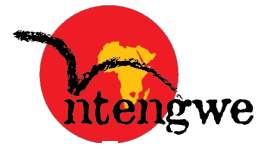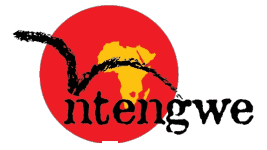Access to Flexible Finance Increases Community Resilience & Women’s Leadership
Enhancing Climate Resilience
The Community Resilience Funds (CRF) serve as an innovative and flexible finance mechanism to channel resources directly to grassroots women’s groups living in risk prone poor communities.
 Matabeleland North is particularly vulnerable to climate change and already impacted by more irregular and intense climate variability. Every year the province is affected by a range of hydro-meteorological and climatological hazards, from droughts and forest fires to storms, floods and extreme temperatures.
Matabeleland North is particularly vulnerable to climate change and already impacted by more irregular and intense climate variability. Every year the province is affected by a range of hydro-meteorological and climatological hazards, from droughts and forest fires to storms, floods and extreme temperatures.
We support grassroots women’s groups to deliver effective pro-poor disaster risk reduction and resilience building practices and to collaborate with local and national governments to scale-up grassroots and women-led development initiatives.
Through mapping risks and collective planning, grassroots women’s groups build community resilience with an understanding of how risk and vulnerability affect women.
Together we then tailor the processes to the local context, place Community Resilience Funds directly into the hands of the women grassroots groups, develop procedures for the groups to manage and monitor the funds to ensure transparency, efficiency and accountability.
Waste Livelihoods
 Grassroots women in Hwange district for example utilize waste materials to generate income. With the support of the Community Resilience Fund, women, equipped with the protective gear collect waste materials for their entrepreneur social enterprises.
Grassroots women in Hwange district for example utilize waste materials to generate income. With the support of the Community Resilience Fund, women, equipped with the protective gear collect waste materials for their entrepreneur social enterprises.
Exploring business models, associated with waste materials, these women produce bags, mats and cushion covers to generate income in the absence of employment.
Building resilience to improve access to fuel and energy

Grassroots women in Hwange district use the Community Resilience Funds to improve access to clean energy and participate in forest management.
Through our strategic program on resilience, we are promoting the use of integrated approaches to address the threats posed by climate shocks and natural resource degradation. The improved access to fuel and energy program approach is a pertinent example.
Grassroots women use comprehensive interventions that respond to the fuel and energy needs of affected populations while taking into account the sustainable management of natural resources.
Cooking fuel needs exerts great pressure on forest and woodlands. Furthermore, collecting fuelwood takes time away from income-generating activities, childcare and leisure, and traditional three-stone fires in poorly ventilated spaces exposes women and children to respiratory illnesses.
With the support of the Community Resilience Fund, grassroots women implement energy-related projects, implementing training projects by helping groups to build their own fuel efficient stoves, and train groups in sustainable management of natural resources.
Building resilience – Responding to COVID 19
 Drawing on their experience in disaster risk-reduction women become front-line leaders in an effort to reduce pandemic risks on the community members lives and livelihoods.
Drawing on their experience in disaster risk-reduction women become front-line leaders in an effort to reduce pandemic risks on the community members lives and livelihoods.
Organized grassroots groups employ strategies working in humanitarian relief. The women engage their knowledge of underlying risks and use community resilience funds to create pandemic-responsive action plans to build community resilience.
They collectively assess the situation and its impacts in their community context, and adapt resilient livelihood practices to revive the local economy, reduce health risks and build community capacities to cope with the current pandemic.
For example, in Hwange district, where women could not rely from income as a consequence of the lockdown measures, women used the community resilience funds to purchase materials to sew face masks to strengthen their entrepreneurship skills.

